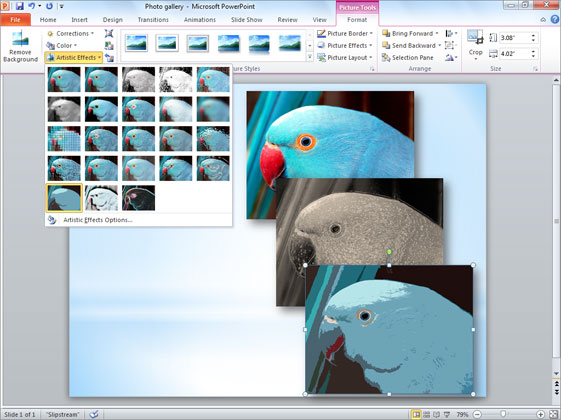2010: Technology's year in numbers

A countdown of the figures that made headlines over the past 12 months
As 2011 approaches, silicon.com looks back at the numbers that made their mark on the past 12 months.
SOFTWARE
Three - In May, the BBC unveiled the third version of its iPlayer TV service, which included new social networking and chat functionality.
Nine - Microsoft unveiled the beta version of its latest internet browser, IE9, in September.
10 - The number of acquisitions made by Oracle in 2010. With so much integration work ahead, it's no surprise Oracle is looking to join the dots with its Fusion middleware platform, set for release in 2011.
365 - A cloud version of Microsoft's Office suite was announced in October. Office 365 features online versions of the standard Office applications, such as Word and PowerPoint, but also the collaboration and unified communications technology SharePoint Online, Exchange Online and Lync Online.

In June Microsoft launched Office 2010, which features an updated version of PowerPoint
(Screenshot: Microsoft)
2000 - It was the end of the road for Windows 2000 in July when Microsoft support for the decade-old operating system ended.
2010 - That's Office 2010, Microsoft's latest desktop productivity suite, which was unveiled in June.
20,000 - According to Microsoft, 20,000 customers are now building apps in Windows Azure.
240 million - The number of Windows 7 licences sold by October 2010.
$1.3bn - The long-running court case between SAP and Oracle ended with SAP handing over $1.3bn after a Californian court found its TomorrowNow subsidiary had infringed Oracle's copyright.
For the 2010's big numbers in hardware, mobile and networks, see page 2.
HARDWARE
£429 - The price for the most basic wi-fi-only 16GB iPad when it went on sale in the UK in May. The 3G version started at £529.
500 - The HP Slate 500 to be exact, the company's own tablet answer to the iPad. First unveiled at the Consumer Electronics Show in Las Vegas in January, the Slate 500 was released in October.
300,000 - The number of iPads sold on the first day of release.
7.5 million - The total amount of iPads sold since launch.
20 million - Thanks to the iPad, tablet PCs became one of the hottest technologies in 2010 with analyst house Gartner forecasting that 20 million tablet devices will be sold globally by the end of the year.
Since the iPad went on sale in April, Apple has sold about 7.5 million of the tablet devices
(Photo credit: Apple)
MOBILE
One - Google's own Android phone, the Nexus One, was unveiled in January and released in the spring. Made by HTC, the phone was sold via Google's website but it was discontinued by the end of the year. Google's Android OS, however, is continuing to gain market share.
4 - Apple's iPhone 4 was announced in June at its Worldwide Developers Conference. The new device was faster, thinner and heavier than its predecessor.
7 - Microsoft announced its Windows Phone 7 operating system at the Mobile World Congress trade show in February.
1.7 million - Despite the iPhone 4's problems with its antenna, Apple still sold 1.7 million of the devices in the first three days after it went on sale.
14.1 million - And the iPhone 4 continues to do well, with 14.1 million sold to date, according to Apple.
NETWORKS
50 - The Labour government had proposed a 50p-per-month tax to fund the rollout of next-generation broadband, set to come into force in October 2010. The idea was scrapped, however, as the election approached.
100 - Virgin Media said it was to roll out 100Mbps broadband by the end of 2010.
100 - 100Mbps was also the same speed broadband that the Conservative Party tech manifesto promised would be rolled out across the UK through a range of policies.
2010's news in numbers continues on page 3.
PUBLIC SECTOR
13,200 - The number of ID cards distributed to UK citizens before the incoming coalition government announced plans to scrap the project. The cards were mainly issued in Greater Manchester, which was the focus of the first rollout, as well as to foreign nationals and civil servants at the Home Office.
£500,000 - The maximum fine that can now be issued by the Information Commissioner to businesses for breaches of the Data Protection Act under new powers brought in this year.
£95m - The coalition government announced £95m of cuts to central government tech spending over the current financial year.
The government announced its G-Cloud project at the beginning of the year, aimed at saving the public sector £3.2bn
(Photo credit: Shutterstock)
£1bn - This was the amount money that HM Revenue & Customs plans to save through its outsourcing contract with Capgemini.
£3.2bn - The amount of savings the government said will be achieved by the G-Cloud project in which local and central government will share centrally-hosted applications.
ACQUISITIONS
$1.2bn - The amount HP paid for mobile device maker Palm in April.
$2.2bn - The figure open source software maker Novell accepted to be acquired by Attachmate in November.
$5.8bn - SAP shelled out nearly $6bn for mobile platform company Sybase in May to boost its hybrid technology strategy.
$7.7bn - The amount Intel spent $7.7bn to buy security software company McAfee.